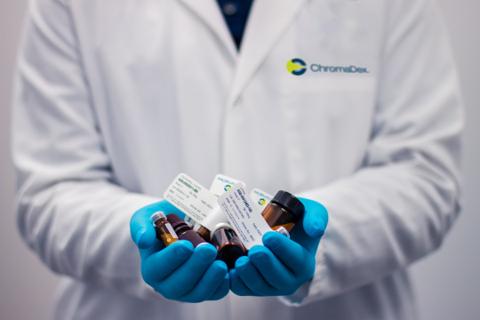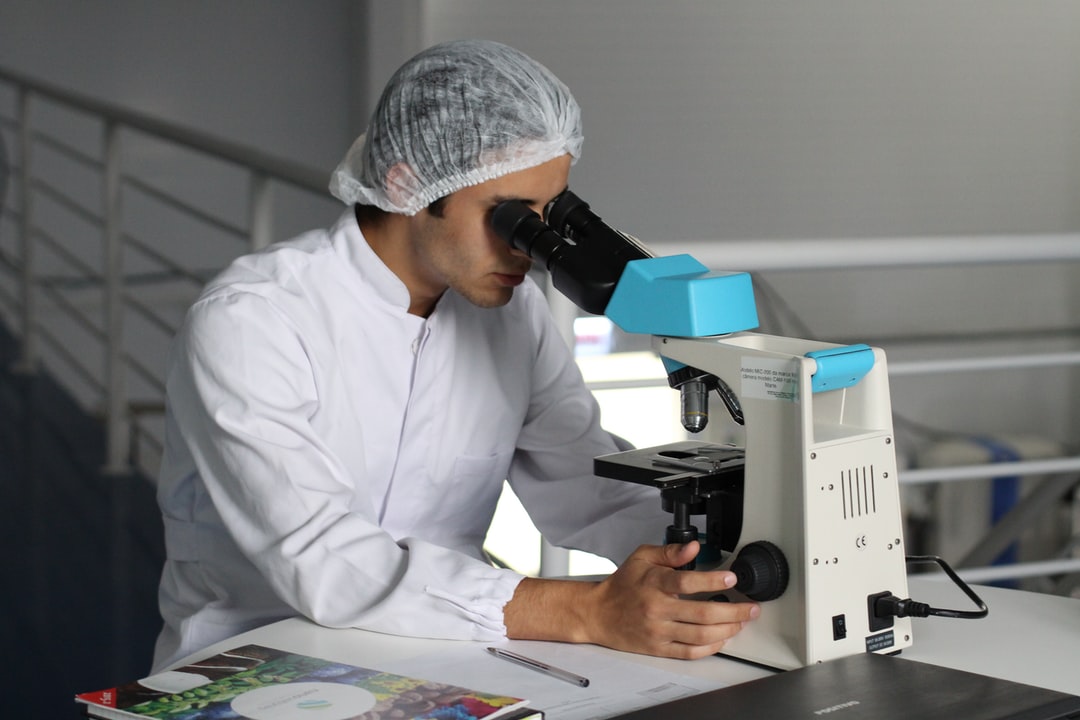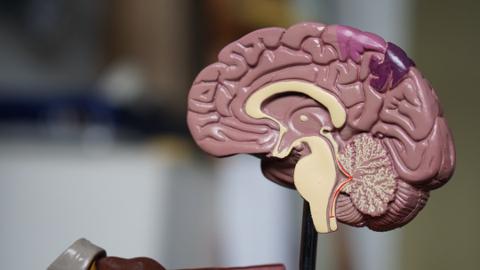Proka GENOMICS
We are pleased to announce that the ProkaGENOMICS conference is back in 2022 and is devoted to the motto "From Small Viruses to Complex Communities".
Our three main topics are as follows:
- Structure & Function of Microbiomes
- Bacterial & Archaeal Viruses
- Biocatalysts & Molecules from Microbes or Microbial Assemblages
One of the most revolutionary developments in the biological sciences in recent years is the recognition of the importance of microbiomes. Microbiomes are key to health and disease of their hosts, including plants, animals and humans. Moreover, they play central roles in the biogeochemical processes that sustain life on our planet. At present, one of the main goals is to elucidate the composition and functions of the microbiota, and the complex interplay between the microbiota and their given environment.
In the past, microbiomes have mainly been defined by their bacteria, archaea, fungi, algae and protists, but also viruses play pivotal roles in microbial communities. Unraveling the biology of bacterial and archaeal viruses and their relationship to their hosts is key to understanding microbial systems, their exploitation and how our microbial driven world is impacted by viruses.
Our rapidly increasing understanding of microbes and microbial communities also offers new horizons for white biotechnology. With respect to replace polluting technologies with clean ones white biotechnology provides large benefits - both environmentally and economically.
All these above mentioned hot topics in microbial research are covered by ProkaGENOMICS 2022. A panel of nationally and internationally well-renowned scientists, both from Europe and abroad, will present and discuss the latest developments in these exciting research areas.
The conference will be accompanied by a Minisymposium on 'Phylogenomics - Principles, Tools & Pitfalls' providing the opportunity to learn about techniques to deal with the huge amount of data generated in functional (meta-)genomic analyses for evolutionary reconstructions and taxonomic relationships.
You are cordially invited to participate and to bring your scientific expertise to this conference to make it an outstanding scientific event.
Save the date from 25 - 28 September 2022 and join us in Goettingen!
In 2003 the ProkaGENOMICS conference series on advances in the field of microbial genomics has been launched by three BMBF funded GenoMik research networks. Since then this conference takes place every two years in Göttingen/Germany.
On behalf of the Scientific and Organizing Committees I cordially invite you to attend the 5th European Conference on Prokaryotic and Fungal Genomics, to be held in Göttingen, September 18-21, 2011, which will be organized by two German research initiatives:
- the GenoMik-Transfer initiative, dedicated to application-oriented research on non-pathogenic microorganisms relevant for health, nutrition and industrial production
- the Medical Infectiongenomics initiative, focusing on the investigation of infectious diseases employing genome wide approaches.
The topics of the conference will be as follows:
- Biotechgenomics
- Genomics of Health- and Nutrition-Associated Microorganisms
- Infectiongenomics
- Synthetic Biology, Systems Biology and Bioinformatics
- Biodiversity and Metagenomics
In plenary sessions, short lectures and poster sessions we offer a platform for scientists from Germany and abroad to discuss state-of-the-art topics in different areas of microbial genome research. You are invited to participate, to submit abstracts, and to bring your scientific expertise to this conference to make it, with your personal contribution, an outstanding scientific event.
ProkaGENOMICS represents a vital scientific field that revolves around microbial genomics, a discipline that studies the genetic material of microorganisms, particularly bacteria and archaea. Research in this area is critical for understanding the complexity of microbial communities, known as microbiomes, which inhabit diverse environments from soil to the human gut.
Key Focus Areas
- Microbiomes: Microbiomes are complex ecosystems of microorganisms, including bacteria, archaea, viruses, and fungi. Researchers at the ProkaGENOMICS conference delve into the structural and functional diversity of these communities. Understanding microbiomes has far-reaching applications in medicine, agriculture, environmental science, and industry. In medicine, for instance, microbiomes play a crucial role in human health, influencing digestion, immunity, and even the development of certain diseases. Agriculture benefits from microbiomes through soil health and plant growth enhancement, while industrial applications leverage microbial communities for bioremediation or waste treatment.
- Bacterial and Archaeal Viruses (Phages): Another key topic at ProkaGENOMICS is the study of viruses that infect bacteria and archaea, collectively called phages. Phages have garnered significant attention as potential alternatives to antibiotics, a crucial area of research amid rising concerns about antibiotic-resistant bacteria. By understanding how phages interact with their microbial hosts, researchers can unlock new ways to treat bacterial infections and even engineer phages for biotechnological applications. This field of research is known as phage therapy and holds promise for revolutionizing the treatment of bacterial diseases in humans, animals, and plants.
- Microbial Biocatalysts: Microbial biocatalysts are enzymes or entire microorganisms that catalyze chemical reactions in industrial processes. These biocatalysts are essential for producing biofuels, pharmaceuticals, food additives, and fine chemicals in a sustainable manner. At ProkaGENOMICS, discussions on microbial biocatalysts often center on the discovery and optimization of novel enzymes from extreme environments, such as hot springs or deep-sea hydrothermal vents, where microorganisms have evolved unique biochemical pathways. This aspect of microbial genomics bridges the gap between fundamental research and practical applications in biotechnology, supporting the development of greener, more efficient industrial processes.
- Phylogenomics: Phylogenomics is a powerful tool that uses genomic data to understand the evolutionary relationships between organisms. This approach is particularly useful in resolving complex taxonomic classifications and identifying new species. At ProkaGENOMICS, researchers apply phylogenomic methods to study the evolutionary history of microbes and their adaptations to various ecological niches. By analyzing large-scale genomic datasets, scientists can trace the evolutionary trajectories of microorganisms, shedding light on how they have evolved to survive in extreme environments or co-evolved with their hosts, such as plants, animals, and humans.
Applications in Biotechnology
The insights gained from microbial genomics have vast implications for biotechnology. For example:
- Medical Applications: Personalized medicine can benefit from understanding the human microbiome, with potential for developing microbiome-based diagnostics and therapies.
- Agriculture: Insights into plant-microbe interactions may lead to improved crop yields and pest resistance through probiotic treatments for plants.
- Environmental: Bioremediation strategies that harness the power of microbes to degrade pollutants are increasingly important in addressing environmental contamination.
- Industrial: Microbial enzymes are used in various sectors to create sustainable alternatives to chemical processes, offering greener, cost-effective solutions.
Emerging Research Trends
Recent advancements in genome sequencing technologies and bioinformatics have accelerated the pace of discovery in microbial genomics. Researchers can now sequence and analyze entire microbial communities, revealing new insights into microbial diversity, interactions, and functions. These tools also enable the identification of genes responsible for producing valuable metabolites or bioactive compounds, which can be harnessed for pharmaceutical or industrial use. Synthetic biology, another emerging field, builds on microbial genomics by engineering microorganisms to perform specific tasks, such as producing biofuels or degrading plastics.
Intuitive
We create easy-to-use products.
Adaptable
We build modular solutions.
Durable
We craft long-lasting goods.
Conclusion
The ProkaGENOMICS conference serves as a key platform for scientists to exchange knowledge on the latest trends and discoveries in microbial genomics. Its focus on microbiomes, phages, microbial biocatalysts, and phylogenomics ensures that the research discussed has broad implications for medicine, agriculture, biotechnology, and environmental science. As we continue to unlock the secrets of the microbial world, the potential for transformative innovations in these fields remains immense.





